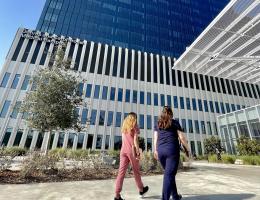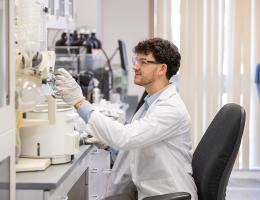
Rooted in faith. Driven by excellence.
Where Science, Service, and Purpose Shape Future Pharmacists
Loma Linda University (LLU) is a Christ-centered, Seventh-day Adventist university that integrates health, science, and faith in a mission-driven learning environment. With eight health science–focused schools, LLU offers an interprofessional campus where student pharmacists train alongside future physicians, nurses, and other healthcare professionals in real-world care settings.
Founded in 2002, the LLU School of Pharmacy prepares pharmacists to improve patient outcomes through compassionate, evidence-based, whole-person care. The Doctor of Pharmacy (PharmD) program emphasizes clinical excellence, collaboration, and meaningful impact on the health of individuals and communities.
Two LLU School of Pharmacy faculty members have been named president of the American Pharmacists Association, reflecting the national leadership and influence of our faculty.
Discover One of the Top Schools of Pharmacy in California


Experiential Education

Prospective Students
Research
We advance pharmaceutical science and patient care through research that promotes innovative ideas, improves best-practice models and addresses health disparities in communities. Explore the latest ground-breaking research published by faculty, staff, students, and residents.
Hispanic Center of Excellence
Loma Linda University School of Pharmacy is the nation's first school or college of pharmacy to house an HRSA Hispanic Center of Excellence (HCEP). As a Center of Excellence, LLUSP provides educational and training opportunities for the community to increase representation among pharmacists, and address health issues throughout San Bernardino, Riverside and Los Angeles Counties.
Administrative Offices
The School of Pharmacy administrative offices and Department of Pharmacy Practice are located in Shryock Hall. The Department of Pharmaceutical and Administrative Sciences is located in Chan Shun Pavilion where faculty are close to research facilities.
Contact Us and Location
See our location on a map and where to park. We’re here to answer your questions about LLUSP — fill out the form below or contact us at [email protected] or 909-558-1300


